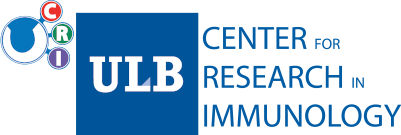Description of the research topics
Research in Fabienne Andris Group focuses on two main topics :- Metabolic control of T cell activation
Pathways that control immune cell function and metabolism are intimately linked, and changes in the metabolic status of immune cells can determine the outcome immune responses. In particular, tumor tissues create suppressive metabolic microenvironments, which contribute to ineffective immune function. Recent studies have shown that successfully manipulating metabolic targets is sufficient to enhance or suppress specific T cell function, thereby offering therapeutic potential for many pathological processes including inflammation, autoimmune-associated diseases and cancer. We study the role of metabolic sensor enzymes in T cell activation, differentiation and plasticity with the aim to identify new facets of metabolism that could be targeted to improve adoptive transferred T cell fitness in cancer therapies.
- CD8+ T cells selectively detect and eradicate cancer cells. However, tumor infiltrating lymphocytes become dysfunctional (or exhausted) over the course of tumorigenesis, leading to cancer evasion to the immune response.
T cells express distinct profiles of exhaustion in response to a persistent antigen (as observed in autoimmunity, chronic viral infection, cancer,…). How the tumor microenvironment specifically contributes to the irreversible dysfunction (or “terminally exhaustion”) of tumor infiltrating T lymphocytes is still poorly described. Our group investigates the genetic, epigenetic and metabolic changes underpinning tumor-driven T cell exhaustion in the context of a mouse model of hepatocarcinoma. We also evaluate the role of liver resident memory T cells in the therapeutic response to immune checkpoint inhibitors and their potential relationships with exhausted T cells.
